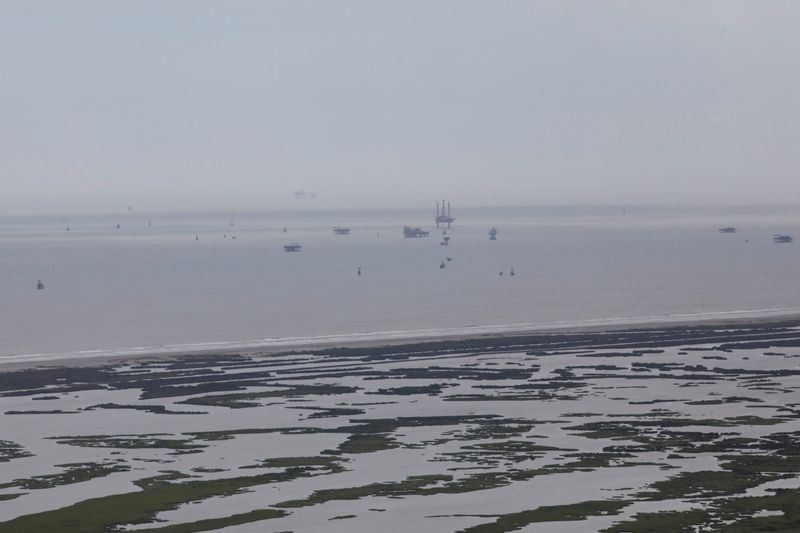By Devika Krishna Kumar and Marianna Parraga
(Reuters) -Royal Dutch Shell (LON:RDSa) Plc, the largest oil producer in the U.S. Gulf of Mexico, on Thursday canceled some export cargoes due to damage to offshore facilities from Hurricane Ida, signaling energy losses would continue for weeks.
About three-quarters of the Gulf's offshore oil production remains halted since late August following Ida, one of the most devastating hurricanes for oil companies since back-to-back storms in 2005. Shell and other oil firms warned they could not yet say when full output would resume.
Shell owns about 80% of the Mars offshore oilfield, and in total pumps about 332,000 barrels of oil per day (bpd) from its eight facilities in the region. Damage assessments at a transfer hub that moves oil and gas from three deepwater oilfields are underway, the company has said.
Shell's crews are working to assess how long production from the Mars corridor will be affected, spokesperson Curtis Smith said in a statement.
Shell declared force majeure on "numerous contracts that we anticipate will be impacted by the damage." Force majeure is a legal provision used when unforeseen events such as storms prevent companies from meeting contractual obligations.
At least two large cargoes of Mars crude sold by Shell to Chinese buyers were canceled, according to people familiar with the matter.
BP (NYSE:BP) Plc, co-owner of the Mars oilfield and the second largest Gulf oil producer, said this week it was resuming operations at some of its own platforms. But it declined comment on the status of Gulf crude exports on Thursday.
Two people familiar with BP's operations said the company this week negotiated the cancellation of a Mars crude cargo to South Korea. A U.S. Gulf Coast refiner separately bought a cargo of Russia's Urals medium crude in anticipation of a long suspension of Mars supplies to U.S. coastal refineries, the people added.
Almost 1.4 million bpd of offshore oil production remains shut and 1 million bpd of refining capacity is also offline. Refineries could fully recover before Gulf output does. However, imported crude is plentiful, the sources said.
DELAYED EXPORTS
Asian buyers including China and South Korea had stepped up purchases of Gulf-produced crude in recent months, and now face lengthy delays before shipments arrive as oil companies assess damage from Ida.
China's Unipec, the trading arm of Asia's top oil refiner Sinopec (NYSE:SHI), was expecting late September and early October deliveries of Mars crude, the Gulf sour benchmark, to be disrupted, traders said.

As of Thursday, at least three very large crude carriers (VLCCs), mostly chartered by Chinese customers, were en route to the Louisiana Offshore Oil Port for September loadings. Another four large crude cargoes this week departed for India and Europe from the Southtex Lightering area off Texas.
U.S. oil exports sank in the most recent week, declining to 2.3 million bpd, a fall of 700,000 bpd, as a result of the shut ins.